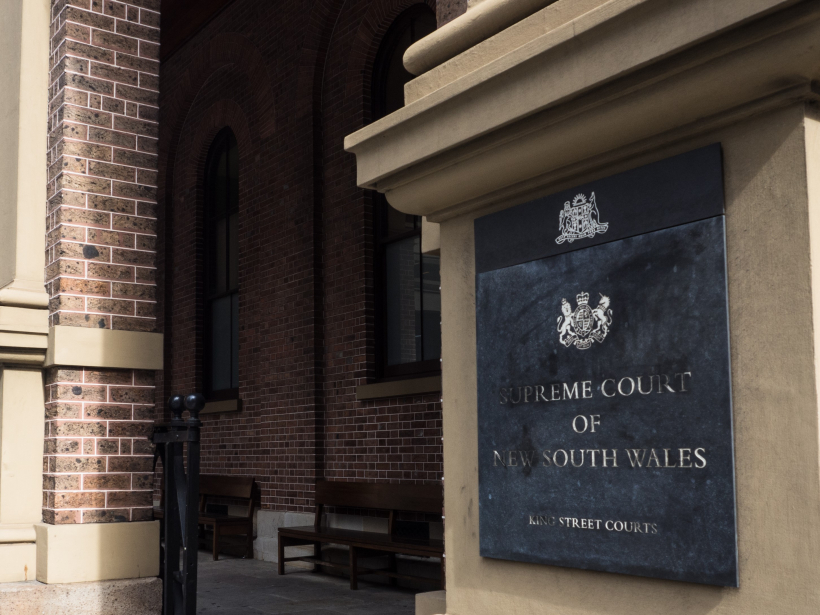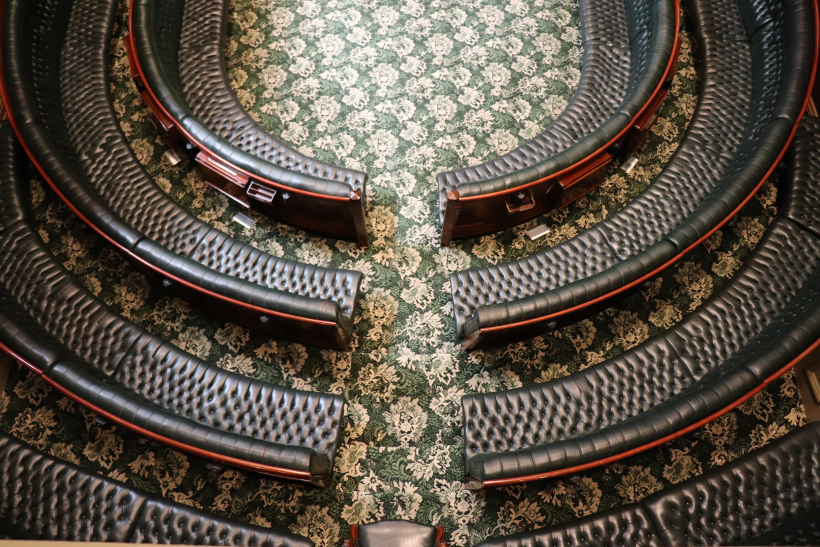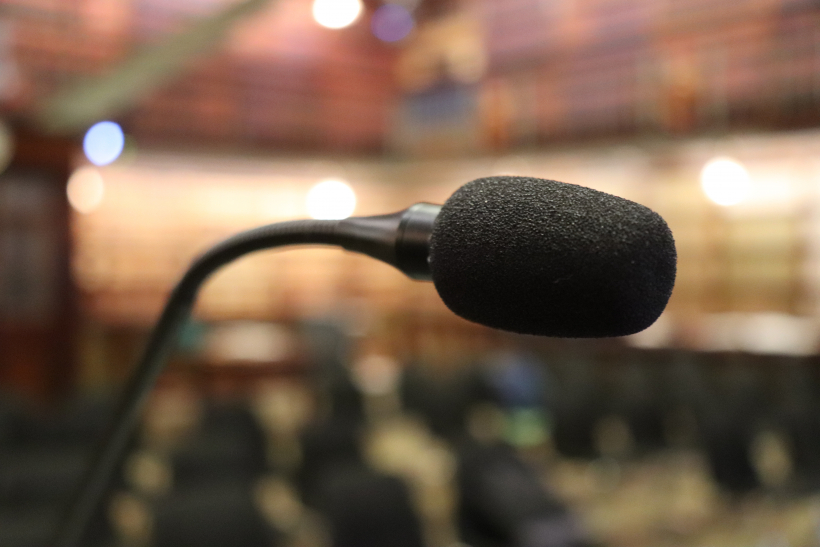What Will I Learn
- What are the three levels of government in Australia
- The difference between each level and the services they provide
What Are The Three Levels Of Government And What Do They Do?
There are three levels of government in Australia:
- Local
- State
- Federal
Each of these levels of government has its own powers, responsibilities and provides services for the people of Australia. Each of them is elected by the people they provide services for.
Federal
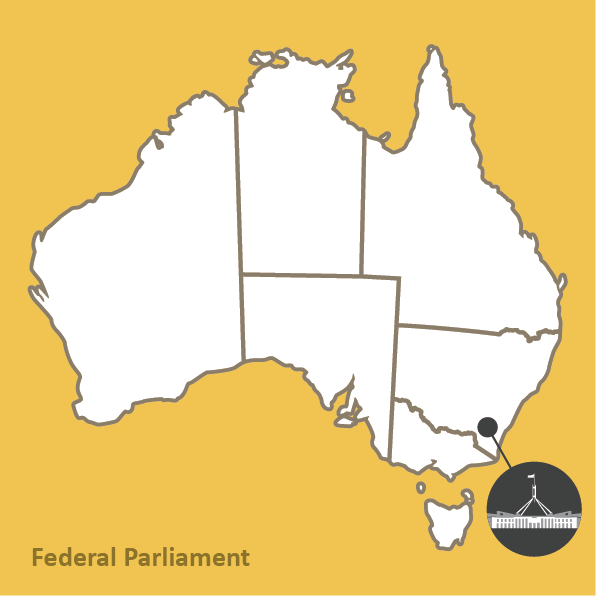
The Australian Constitution is a document, created at Federation in 1901. It outlines what laws the Federal Parliament in Canberra can make for the whole nation.
The Federal Parliament is made up of two Houses:
- House of Representatives with 150 Members representing separate electorates (including 47 for NSW)
- Senate with 76 members 12 from each state, 2 from each of the two territories
In Australia the Federal Government is made up of members of the Federal Parliament who belong to the political party that won the most seats at the last election. The Prime Minister is the Leader of the Government and, with the Ministers, is responsible for putting the laws that parliament makes into action. The Federal Government also collects income tax and GST and redistributes this to the States and Territories so they can fund their responsibilities.
Federal parliament makes laws about:
- Defence
- Foreign Affairs
- Imports and Exports
- Immigration
- Currency
- Airports
- Post and Telecommunications
- Social Services
- Tertiary Education
- Passports
State or Territory
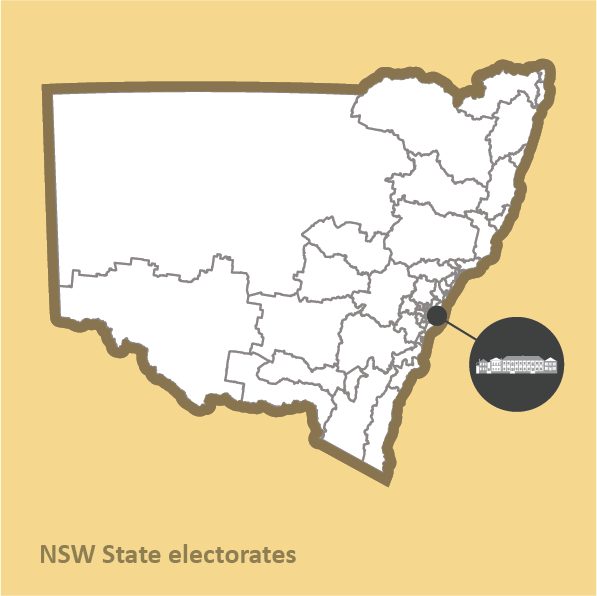
Australia has six states. Can you name them?
There are also two territories – the Northern Territory and the Australian Capital Territory.
Any of the areas not listed in the Australian Constitution as the Federal Parliament’s responsibility are the responsibility of state parliaments to make laws about. State governments then put these laws into action. But sometimes both levels of government are involved. For example: laws about the environment are made by both the Federal and state parliaments.
Each state has its own constitution which lists the rules for how that state should be governed. The Federal Parliament cannot tell state parliaments what to do. They are each equal to each other in power and independent of each other.
The territories are similar to the states but they are not as independent and the Federal Parliament can disallow laws that they make. It cannot do this to the states. To provide services for their citizens, state and territory governments receive money from the federal government but also raise money from state taxes.
The NSW Parliament is made up of two Houses:
- Legislative Assembly with 93 members representing 93 electorates
- Legislative Council with 42 members representing the whole State
In NSW the state Government is made up of members of the NSW Parliament who belong to the political party that won the most seats in the Legislative Assembly at the last election. The Premier is the leader of the Government and along with their appointed ministers is responsible for putting the laws that Parliament makes into action.
State parliament makes laws about:
- Hospitals
- Schools
- Transport
- Utilities
- Public Works
- Emergency services
- Crime
Local
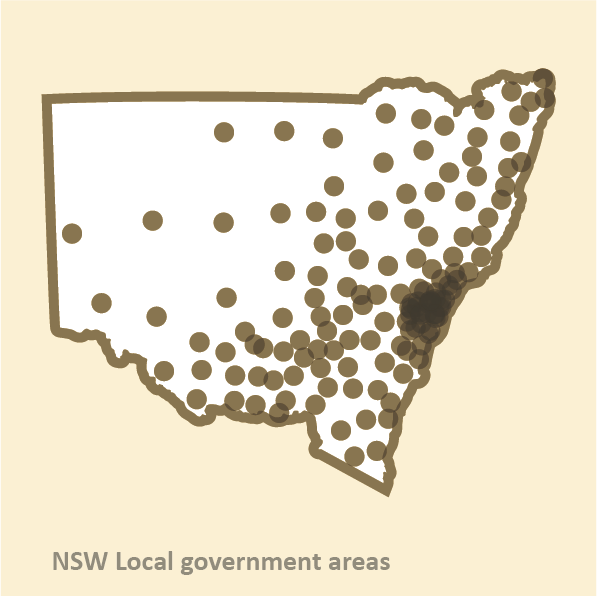
Local government areas are all very different to each other. Local councils are created by the law of the state that they are in. They do not have their own constitution and are not independent like the State and Federal Parliaments. In NSW, the law that tells local governments what they are allowed to do is called the Local Government Act.
Local governments in NSW receive funding from the State Government but also raise money through rates and other fees.
Local government administration offices are located in larger local centres. There are more than 560 local councils in Australia and 129 in NSW. A local council area can be called a City, Municipal or Shire Council. Councils have between 5-15 elected Councillors and each Councillor usually represents one section (Ward) within the local government area but in some councils they represent the whole local area. The Leader of the local council area is called a Mayor or Lord Mayor. In some local councils the Mayor is directly elected. In others they are chosen from the local councillors that were elected at the last local council election.
Local councils make laws about:
- Local roads and street
- Libraries
- Waste disposal
- Recycling
- Community services
- Parks
- Swimming pools


